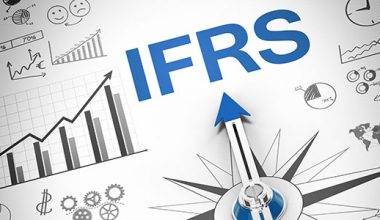One biggest question that goes on in the mind of many small business owners is this. How can my business get accounting and bookkeeping in order? The truth is this, If you can’t keep track of your account as a business owner, there’s a probability that the business may crash soon.
Therefore, you need to keep track of your accounting and bookkeeping as a small business owner. Though this can be daunting and that is why some amazing software has been created to help do this. Small business accounting has been made easy with this software.
And in this article, you will learn how to get started with small business accounting using the software. So that you can ease your work and achieve more.
Small Business Accounting
Before we go into details, let quickly define and understand what small business accounting is. Small business accounting is all the processes involved in analyzing, tracking, and recording all the financial transactions in your business or company. This translates figures into clear and understandable statements that are defined and show the loss and profit of your business.
So, if you just started your business or you are preparing to kick off a new business, learning small business accounting will surely give you confidence that you can handle your accounting and allows you to move on to the next thing in your business planning and promotion.
Small Business Accounting Service
Using small business accounting services is always a good option, especially if you don’t have experience or knowledge about small business accounting. Using small business accounting services is always a good option. Small business accounting services include hiring services of professionals either online or offline to help you execute your work. This set of people will oversee everything that has to do with your business finances. They provide financial statement, insights, and also gives our good recommendation that will help you boost your business. With Small business accounting service will help you control and manage all the side risk that comes with managing the business finance on your own.
Small Business Accounting Software
Small business accounting software is software that performs various accounting and bookkeeping tasks. It can be used to store so many business financial data and can be used o perform many business transactions. They automatically enter, store, and analyze financial data. This software can do more work than individuals but needs technical know-how. This means you need to learn about the software before using it. You can as well employ a freelancer to help you do the work using the software of your choice.
Best Small business accounting software
There are many accounting software out there today. But choosing the right one that is unique, accurate and easy to use should be your goal. But then, finding the right one can be very challenging. And it’s very easy for most small business owners to choose the wrong accounting tools. And according to Shopify below are the best accounting tools every small business owner needs.
- FreshBook
- Wave
- Zipbooks
- Saga 50Cloud
- Blackbaud Financial Edge NXT
- Xero
- OneUp
- Intuit Quickbooks Online
- Zoho Books
#1. Fresh Book:
This can be used in Android or IOS and its pricing starts at $15/per month with a free 30-day trial. It is one of the most popular accounting tools available. Its features are invoicing, time tracking, reporting, mileage tracking, and more.
#2. Wave:
This is free accounting software available for both android and iOS and like said, you don’t need to make any payment. It is designed for small business owners. It is available for windows too. Though free but the wave can do almost anything paid accounting software can do. For example, payroll, bank reconciliation, invoicing, etc.
#3. ZipBooks:
This is only available for iOS but not on android. Zipbooks was created for small business owners who have any experience in bookkeeping. The price starts at $15 monthly with a 30days free trial. And it is very easy to use and can be used for reporting, invoicing, and more. The software started plan is free but any additional plan starts at $15.
#4. Sage 50Cloud:
It is not available for mobile devices. It is a unique small business accounting software that is cloud-based. It has advanced accounting functionality. Because of its functionality and customization, the pricing starts from $65 per month with 30 days trial.
#5. Blackbaud Financial Edge NXT:
This is a small business accounting software basically is for a nonprofit small organization that needs to address their financial accounting service. Because they face a different financial statement problem, they need software like Blackbaud Financial Edge NXT. It is available for a mobile web browser. It has a free trial and its pricing is been sent by the company when you request it.
#6. Accounting Seed:
According to their online page, accounting seed helps small business owners to run their business proactively and strategically. It is available as a mobile app but you can access it through Salesforce. The price is available via request but has a free unlimited trial.
7. Xero:
You can start Xero for free but, its monthly premium price is $11. Here are things you can do Xero; pay bills, capture expenses, accept payment, bank connections, bank reconciliation, look up for customers and check sales, filing, inventory, reporting, and more. Zero is a great good and small business owners are taking advantage of it to scale their businesses.
#8. OneUp:
Here are things OneUp can do for you as business owners. OneUp will give you seamless accounting, stress-free invoicing, simplified CRM, inventory, and more. The price monthly is $9 with a 30 day’s free trial.
#9. Intuit QuickBooks Online:
This software helps in tracking income and expenses, managing cash flow, Invoices and accepting payments, tuning reports And It also helps small managing of tax deductions. This particular software has a lot of interesting and quality accounting features. The pricing starts from $25/month but oftentimes they give a 50% discount.
#10. Zoho Books:
This is a very good software that helps small business owners to manage cash flow and to solve other financial-related problems. The software allows you to automate your business workflow. You can use this for invoicing, paying bills, banking, sending sales orders, inventory, and more. It has a free version, but it’s the premium price is $15/month. And this is very easy to use.
#11. Kashoo:
This is another small business accounting software that helps in customization with good reporting, inventory with a simple user interface with all the major and quality functioning you need for your small business accounting. It has a 14-day free trial and its premium price starts from $20/month. It’s one best software for businesses looking for easy-to-use software that delivers.
#12. Accounting Edge Pro–
This particular software has existed since the year since 1989 for Mac. It has all you need that will make tracking and building inventory, sales and purchasing, billing and contact management. Also, there is additional help for anyone who finds the interface difficult to use. It has a free version for 30-days with a one-time payment of $149.
Free Small Business Accounting Software
Below are seven total free accounting software small businesses can take advantage of.
- Wave
- Akaunting
- Slickpie
- CloudBooks
- Zoho Invoice
- GnuCash
- ZipBooks
Step-by- Step Guide on How to do Small Business Accounting
#1. Open an Account in the Bank:
After registering your business, the next thing to consider is how to analyze and track your financial success in the business. And this starts by opening a business or corporate account for that business. So, you must start by opening an account for the business and as well as opening a saving account that will help you get your money organized and also plan your taxes as well.
Meanwhile, you may need to start planning on how to start building your credit card. This is because credit cards are very important in the future for securing funds. Don’t forget that cooperation and LLCs are supposed to use separate accounts so it doesn’t mix the personal and business assets.
Finally, to open a business account, you need your business name. And that is why you must register your business first.
#2. Control your Expenses
As a small business owner, there are five expenses to pay close attention to. Vehicle-related expenses, travel expenses, food and entertainment, home expenses and office space. Though other expenses come up these five are always there. The truth is that the foundation of every good small business bookkeeping starts from having good, effective and accurate tracking.
#3. Start Building a BookKeeping System
As a small business owner who wants to be conversant with bookkeeping. You will need to develop and establish a good bookkeeping system. Basically, bookkeeping is your day to day process of tracking your daily financial transactions.
And as someone new to the business, you will need to conclude on how to manage your book. You can do it using software or you can as well as do it the DIY ways. You can as well as hire a bookkeeper to do the work for you.
#4. Determine the Taxes
You need to make a plan on how to be paying your tax. You know exactly how much your business model pay for tax in your country. If you are someone who import or export they are specific amount your country will charge you for that. You have to bear paying tax in mind.
In order words, you need to determine your tax obligations, and learn how to establish the procedure for sales tax.
#5. Always Calculate Your Gross Margin.
As a new business owner, you need to know more about the cost of products(goods) sold and gross margin. This is important because when you improve your gross margin, it will help you earn more money. Let’s briefly look at what gross margin is as well as what the Cost of Goods sold is.
The cost of goods sold is the total amount of money made from all the goods produced. While the gross margin is gotten when you divide the difference between revenue and cost of products sold by revenue. This is mostly in percentage.
#6. Apply for Funding
If there’s a need for extra financing, your knowledge about small business accounting will help you know how to apply for funds. Moreover, for you to get a small business loan, you need to present well written financial statements. And these financial statements include the balance sheet and income sheet or possibly all your cash flow statements.
#7. Look for Accountability Partner
You must find someone who will help you out. Especially, someone who has experience in the accounting field. For example, an accountant, certified public accountant, tax preparer, bookkeeper and tax planner. They will contribute a lot to your small business accounting.
Conclusion
These ideas will help you get started with small business accounting as a new business owner. Remember, you can do it the DIY way of using book and biro but you can take advantage of small business accounting software.
FAQs On SMALL BUSINESS ACCOUNTING
How do small businesses keep track of finances?
Here’s how to keep track of your business costs:
- Open a business bank account.
- Choose an appropriate accounting system.
- Choose cash or accrual accounting.
- Connect financial institutions.
- Begin managing receipts properly.
- Record all expenses promptly.
- Consider using an expense app
What type of accounting do small businesses use?
While the cash basis may be simpler to use, most organizations prefer to record transactions on an accrual basis. You record money when you make a sale and expenses when you incur them using this method.
How much money should a small business have in the bank?
In general, you should keep three to six months’ worth of cash reserves on hand. The idea is that these funds should be sufficient to satisfy your obligations even if you don’t have any financial intake during the month.
What are the 2 kinds of bookkeeping?
The two most prevalent types of bookkeeping are single-entry and double-entry. While each has its own set of benefits and drawbacks, the company must choose the one that is best suited to their needs.







1 comment
Corporation tax return is also known as company tax return. All limited companies need to pay corporation tax. The rate of corporation tax is currently set at 19%. A company must submit its corporation tax return (CT600) and pay corporation tax if your company has chargeable profits. However, in case your company has not gained any profit, you will still need to submit the return. Your company shall be assessed on the profits made before the accounting period which is considered as the taxable period.
You submit your statutory accounts with Companies House while the corporation tax with HMRC. The deadlines for submitting your accounts with Companies House are as follows:
You can submit your first account 21 months after the registration date with Companies House
You can submit annual accounts 9 months after the end of your company’s financial year.